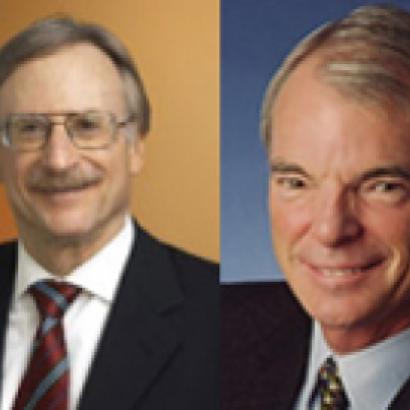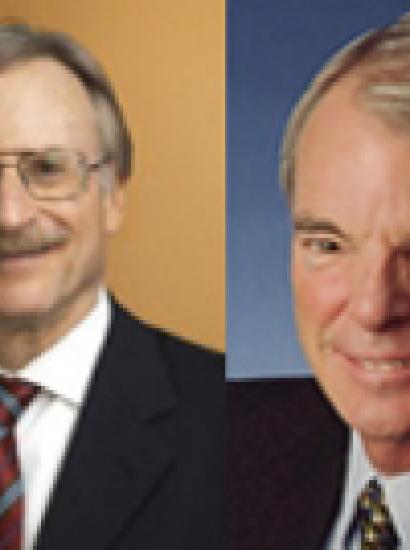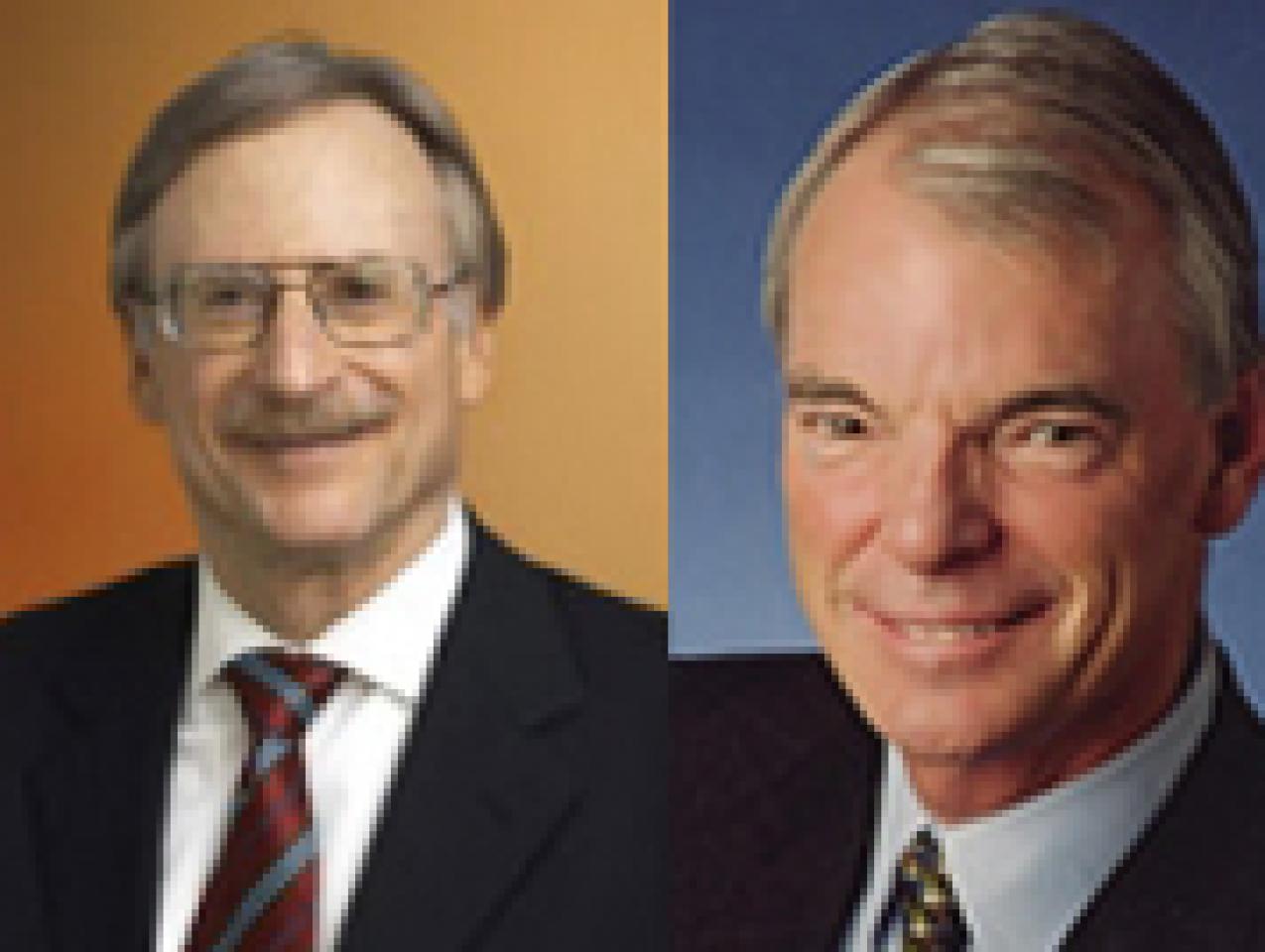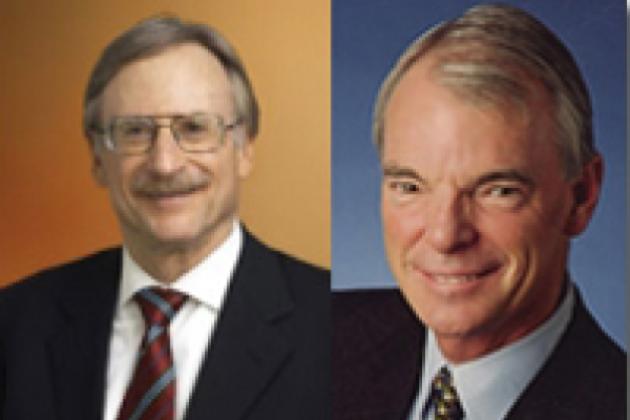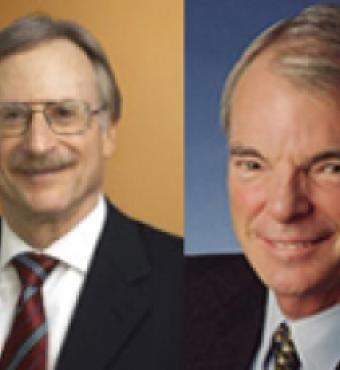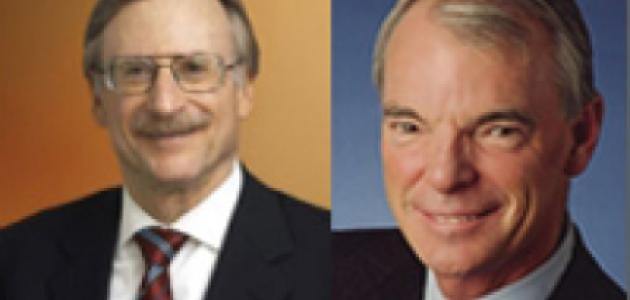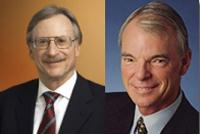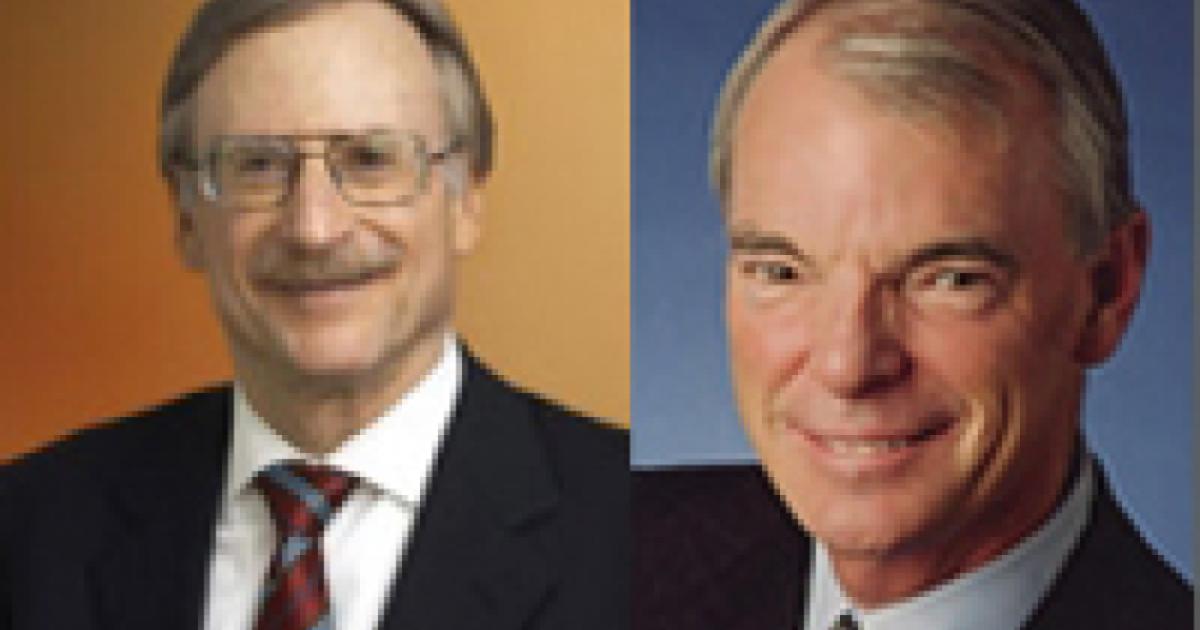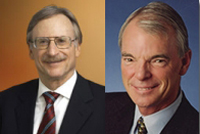
Michael Boskin, a senior fellow at the Hoover Institution and the T. M. Friedman Professor of Economics at Stanford University, and Michael Spence, a senior fellow at the Hoover Institution and the Philip H. Knight Professor Emeritus of Management in the Graduate School of Business at Stanford University, were keynote speakers at the China Development Forum at the Diaoyutai State Guest House in Beijing on March 20, 2011. The China Development Forum is the annual conference of China’s State Council (the equivalent of our cabinet), headed by the premier and including all the ministers. The forum pairs outside experts with the relevant minister on various important economic and policy topics. Professor Boskin was paired with China’s finance minister, Mr. Xie Xuren. Professor Boskin’s talk, “The Fiscal Policy Debate,” analyzed economic and political debates both within the United States and between the United States and Europe on the efficacy of countercyclical fiscal policy, the relative potency of spending increases and reduced taxes, and the need for, composition of, and appropriate timing of fiscal consolidation to control budget deficits. Professor Spence was paired with Zhang Ping, chairman, National Development and Reform Commission, and Stephen Roach, professor, Yale University and nonexecutive chairman, Morgan Stanley (Asia).
From alternative macroeconomic theories to a survey of empirical evidence, Professor Boskin also laid out the similarities and differences in the use of fiscal policy in advanced economies such as those of the United States, and China. Particularly relevant are the fraction of the population that is liquidity-constrained, the nature of unemployment, the nature of fiscal institutions, the stance of monetary policy, and the exchange-rate regime.
Minister Xie discussed Chinese fiscal policy in the context of the just-announced Twelfth Five-Year Plan, efforts to increase transparency in China’s budgeting, and new policy priorities. Other sessions covered energy and the environment, trade, monetary policy, social policy, and the global economic outlook (which Professor Boskin also addressed).
Professor Spence discussed the Chinese Twelfth Five-Year Plan, which was adopted in March 2011. It provides the road map for growth and development and policy for the Chinese economy. Professor Spence identified the key elements in the complex transitions embedded in the Twelfth Five-Year Plan and in China's middle-income transition. He then spoke about some of the key challenges in implementing the plan, focusing on financial-sector development and the central importance of avoiding low-return investments in the public sector and in the still large state-owned enterprise sector. This latter is a deceptive trap as the investment generates aggregate demand and appears to drive growth, but the intertemporal multipliers associated with high return investment are missing. Eventually the investment-driven model would run out of gas.
Other participants in the forum included Professor Martin Feldstein of Harvard; Professor Joseph Stiglitz of Columbia, emeritus dean of the Stanford Business School; Lord Nicholas Stern, London School of Economics; and John Lipsky, first deputy managing director of the International Monetary Fund (a Stanford PhD and former student of Professor Boskin’s). Other Chinese presenters included Foreign Minister Yang Jiechi, People’s Bank of China governor Zhou Xiaochuan, and Vice Premier Li Kejiang, widely considered the likely next premier. The forum concluded with summaries of the respective sessions in a lengthy meeting with Premier Wen Jiabao.
For more information, go to the China Development Forum website.







